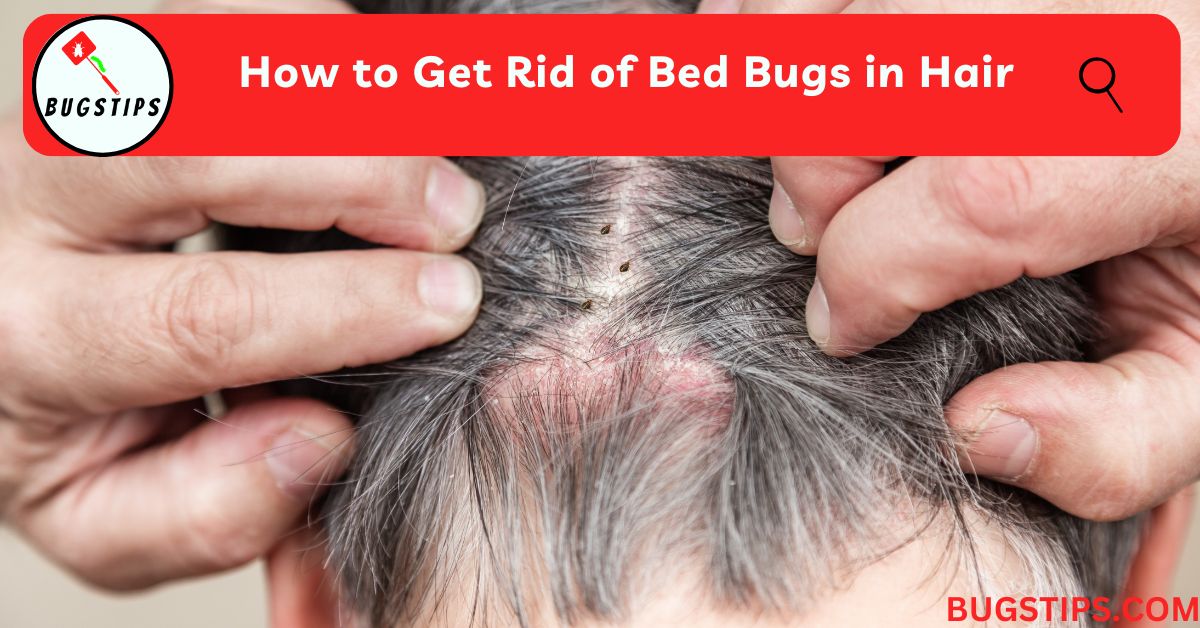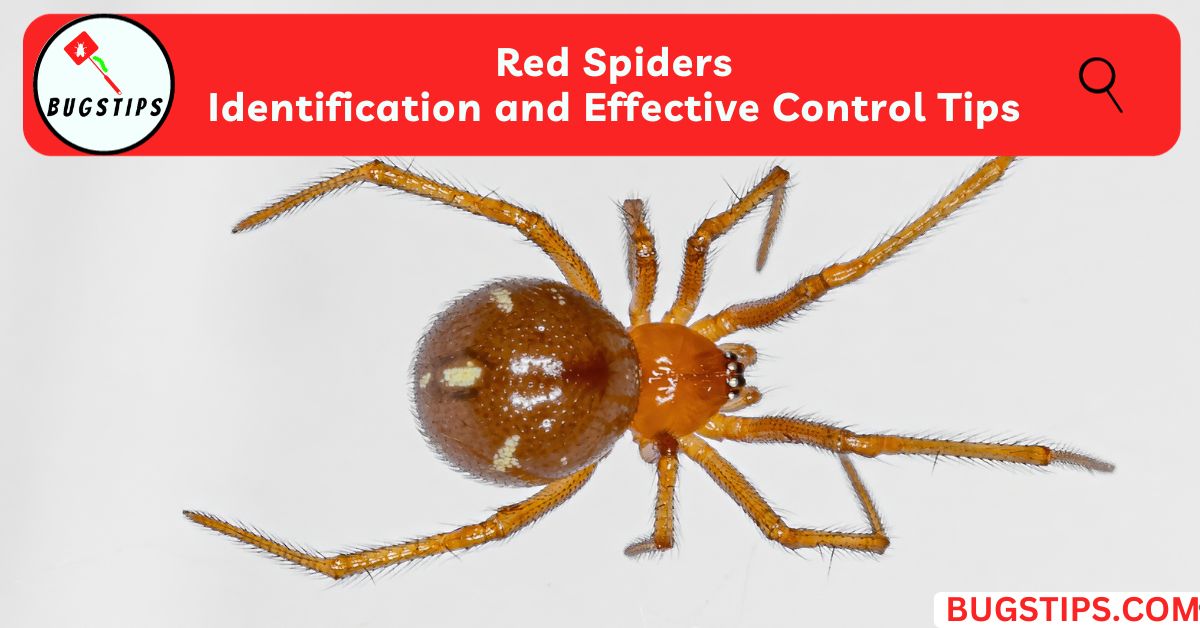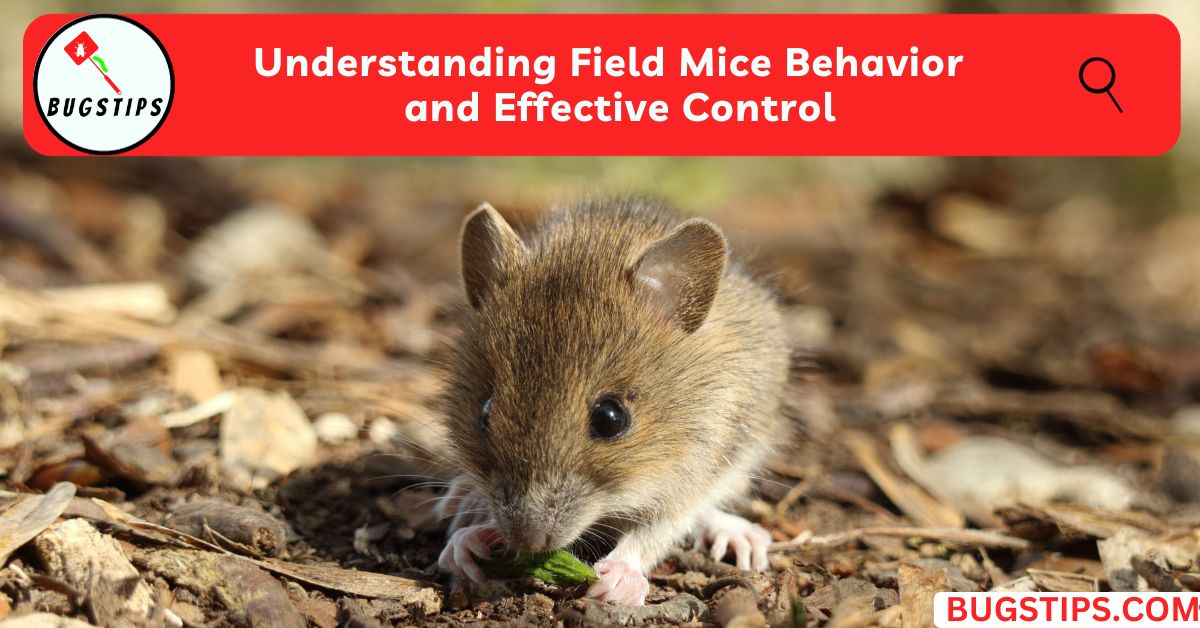This post may contain affiliate links which means as an Amazon Associate, this site may earn a small commission on qualified purchases made through links at no extra cost to you. Learn more on Affiliate Disclosure
Spiders are a common household pest that can be a nuisance to deal with. If you’re like many homeowners, you may be looking for a quick and easy solution to get rid of them.
But can Windex do the trick? Does Windex Kill Spiders? Windex is a popular glass cleaner that many people have on hand and some claim that it can effectively kill spiders.
In this article, we’ll explore the effectiveness of Windex in killing spiders, how it works, and whether it can also kill spider eggs and nests. We’ll also provide some alternative methods for controlling spiders in your home.
So, if you’re curious about whether Windex can help you keep your home spider-free, keep reading to find out.
Does Windex Kill Spiders?
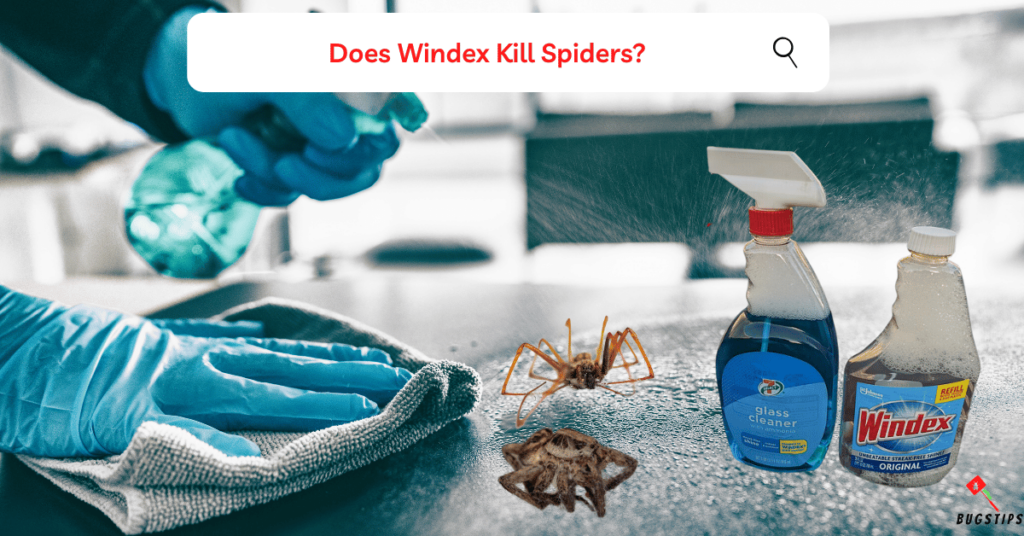
Windex is a popular glass cleaner that many people have used for purposes beyond cleaning windows.
One such use is as a method for killing spiders. But does Windex actually kill spiders? The answer is yes but with some limitations.
Windex contains a variety of chemicals that can be harmful to insects, including spiders. When sprayed directly onto a spider, the chemicals in Windex can break down the spider’s exoskeleton, ultimately causing it to die.
However, Windex is not specifically designed to kill spiders, and its effectiveness may vary depending on the size and species of the spider, as well as the amount of Windex applied.
You May Also Like – Do Spiders Make Noise? 13 Fascinating Facts
How to Use Windex to Kill Spiders?
If you find yourself faced with a spider and want to try using Windex as a means to eliminate it, here are some steps you can follow.
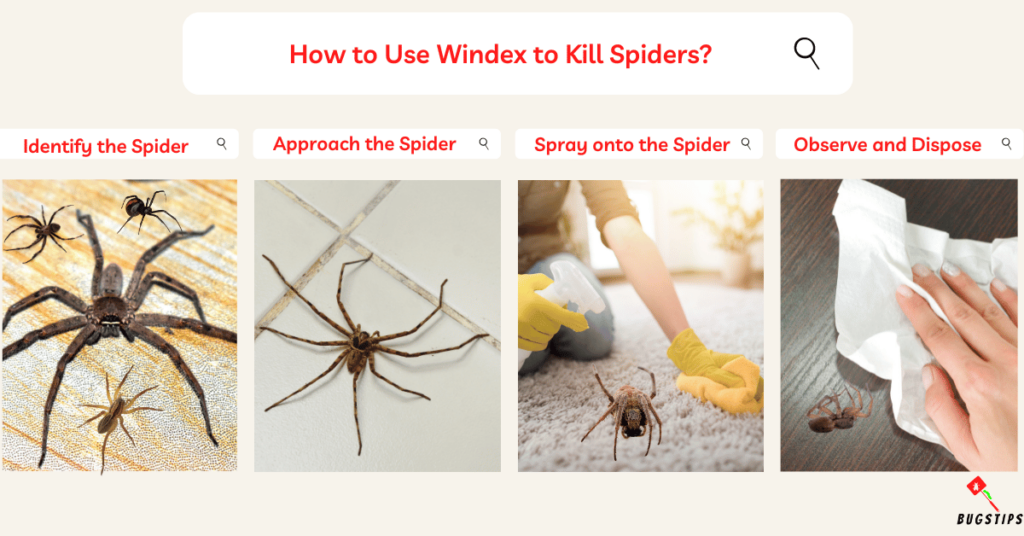
Identify the Spider
- Before taking any action, it’s important to identify the spider species you’re dealing with, if possible.
- Some spiders, such as cellar spiders or daddy longlegs, are considered beneficial as they prey on other insects.
- In such cases, it may be best to leave them undisturbed.
- However, if you’re dealing with a potentially harmful spider, exercise caution and proceed accordingly.
Related Article – Are Woodlouse Spiders Poisonous? The Truth
Approach the Spider
- Carefully approach the spider, keeping a safe distance.
- Take note of its location and ensure you have a clear line of sight to avoid accidentally spraying other surfaces or objects.
Spray onto the Spider
- Shake the bottle of Windex to ensure the contents are well mixed.
- Aim for a direct and accurate spray by adjusting the nozzle to a fine mist or stream.
- With a steady hand, aim the Windex directly at the spider.
- Make sure to coat it thoroughly with the spray.
- The idea is to target the spider and potentially block its spiracles, leading to suffocation.
Observe and Dispose
- After you’ve sprayed the spider, wait a few minutes to give the Windex time to work.
- Within a minute or two, if enough Windex is applied, the spider will begin to die and its body will curl up.
- Once the spider has died, you can use a paper towel or tissue to remove its body from the area.
Related Article – Do Spiders Feel Pain?
Windex can be an effective method for killing spiders, but it's not a guaranteed solution and should be used with caution.
Does Windex Kill Spider Eggs?
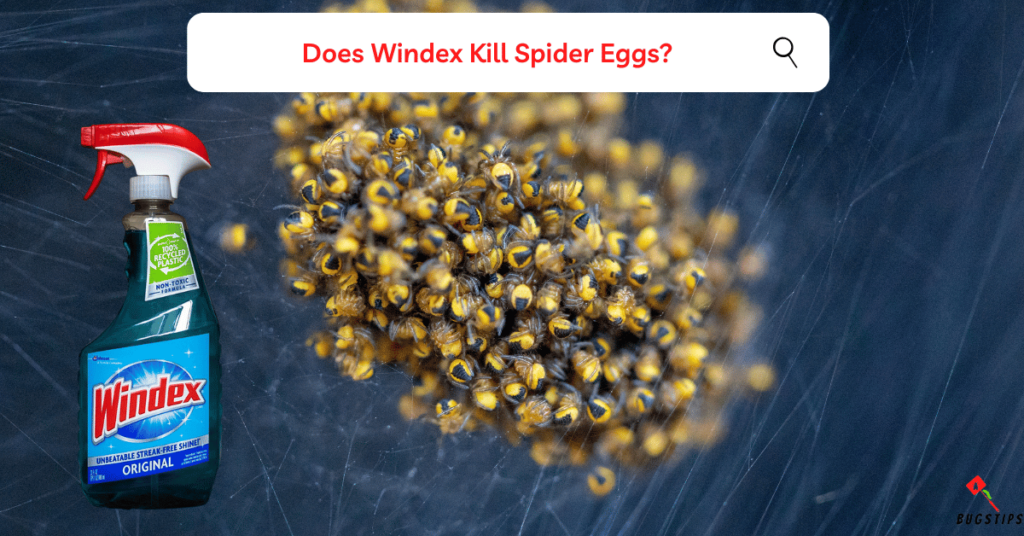
While Windex can be effective in killing adult spiders, it may not be as effective in killing spider eggs.
Spider eggs are often laid in hidden or hard-to-reach areas, making it difficult to spray them directly with Windex.
Additionally, spider eggs have a protective sac that can shield them from the chemicals in Windex, making it harder for the product to penetrate and kill them.
If you suspect that there are spider eggs in your home, it’s best to use alternative methods to eliminate them.
Related Article – How to Get Rid of Spiders Under Eaves
Use a Vacuum Cleaner
- If accessible, use a vacuum cleaner with a crevice attachment to gently suck up the egg sacs.
- Ensure that you dispose of the contents in a sealed bag or container, preferably outside your living space, to prevent any eggs from hatching inside your home.
Physical Removal
- In cases where egg sacs are located in easily reachable areas, you can carefully scrape or remove them using a soft cloth, tissue, or a disposable glove.
- Be cautious not to rupture the sacs, as this may release the eggs.
Related Article – How to Trap Spiders at Home: Only Guide You Need
Will Windex Kill Spider Nests?
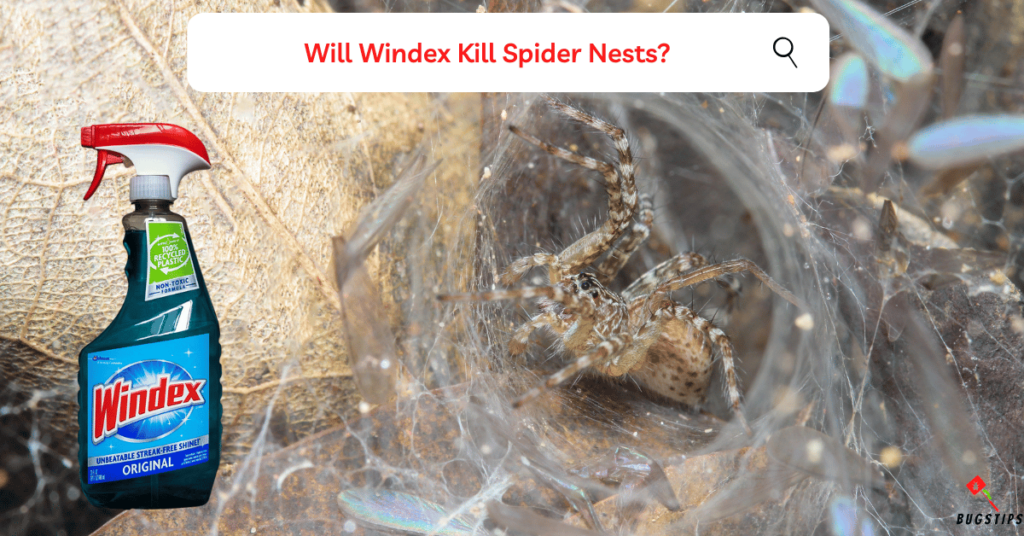
While some people may claim that Windex can kill spider nests, from our experience and expertise in the field of pest control, we have found that Windex may not be the most effective method for eliminating spider nests.
The protective silk material of spider nests can make it difficult for the product to penetrate and reach the spiders inside the nest.
Furthermore, using Windex to kill spider nests may not be the safest or most effective method.
Windex contains chemicals that can be harmful to humans and pets if ingested or inhaled, and using it in areas with poor ventilation can increase the risk of exposure.
If you’ve identified a spider nest in your home, we recommend using alternative methods to eliminate it.
Related Article – What Happens When You Destroy Spider Webs?
Effective Alternatives to Windex for Spider Control
While Windex may have some impact on spiders, it is beneficial to explore alternative methods that have proven to be more effective in spider control.
Here are some options to consider.
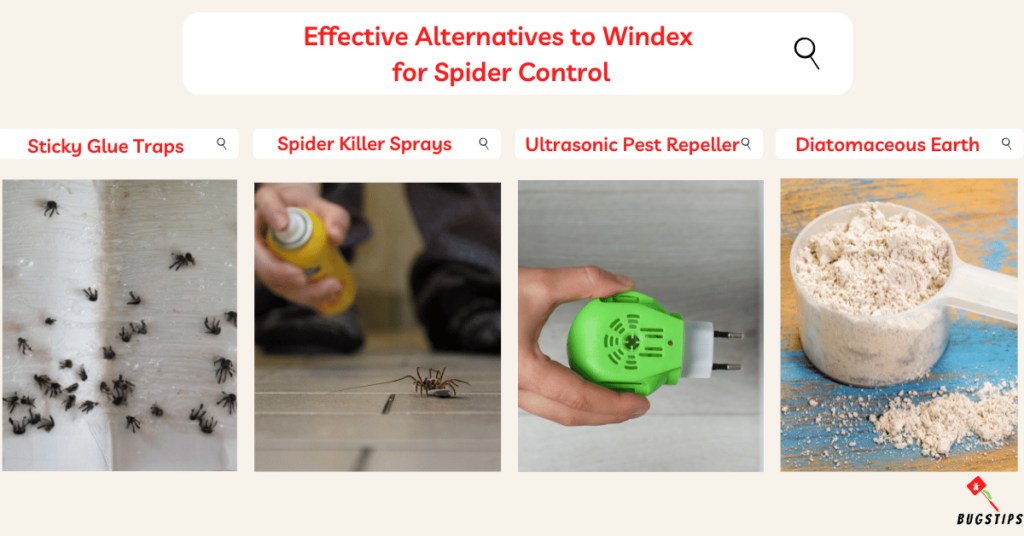
Sticky Glue Traps
- Sticky glue traps are an effective tool for monitoring and capturing spiders.
- These traps consist of a flat board or card coated with a sticky adhesive.
- When spiders come into contact with the trap, they become stuck and are unable to escape.
- Sticky glue traps are particularly useful in areas where spiders are commonly observed or suspected, such as corners, baseboards, or attics.
Spider Killer Sprays
- Spider killer sprays are specifically formulated to target and eliminate spiders on contact.
- These sprays often contain insecticides or natural ingredients that are toxic to spiders.
- When using spider killer sprays follow the instructions provided by the manufacturer and apply the spray directly to the spider or its hiding places.
- Spider killer sprays have a residual effect, providing longer-lasting protection against spiders.
Ultrasonic Pest Control Repeller
- Ultrasonic pest control repellers emit high-frequency sound waves that are inaudible to humans but can disturb and deter pests, including spiders.
- These devices are easy to use and can cover a wide area.
- The effectiveness of ultrasonic repellers may vary depending on factors such as the size of the room and the type of construction materials.
- It is recommended to follow the manufacturer’s instructions and consider placing multiple repellers throughout the affected areas for optimal coverage.
Diatomaceous Earth
- Diatomaceous earth is a natural, non-toxic substance that can be used to control spiders.
- It is available in powder form and can be sprinkled in areas where spiders are commonly found, such as cracks, crevices, and corners.
- It works by dehydrating the spider’s exoskeleton, causing it to die.
- Use food-grade Diatomaceous Earth and follow the instructions for application.
Related Article – Does Diatomaceous Earth Kill Spiders?
Instead of using Windex, these alternative methods can be used to effectively get rid of spiders as they have been proven to be effective in controlling spider infestations.
Final Thoughts
While Windex may be effective in killing adult spiders, it may not be the best solution for eliminating spider nests or eggs.
Additionally, using Windex may not be the safest or most eco-friendly method for controlling spider infestations.
Therefore, it is recommended to use alternative methods that are safe, effective, and eco-friendly for spider control.
By choosing a method that is safe and effective, you can effectively manage spider populations in your home and prevent future infestations.
FAQs
How does Windex kill spiders?
Windex can potentially kill spiders upon direct contact by suffocating them by blocking their spiracles (respiratory openings) and flooding them with its watery degreaser properties.
Does Windex kill black widows?
While Windex may harm black widows upon direct contact, it is not a recommended method for eliminating them. Black widow spiders are venomous and should be handled by professionals for safe and effective removal.
How long does it take for Windex to kill a spider?
The time it takes for Windex to kill a spider can vary. Factors such as the size and species of the spider, as well as the amount of Windex applied, can influence the effectiveness. Generally, it will take between 1 minute and 15 minutes to fully kill the spider.
Can a spider survive Windex?
Spiders are resilient creatures, and their survival after exposure to Windex can depend on various factors such as species, size, and individual resilience.
Is Windex toxic to humans?
Windex, when used as directed, is generally considered safe for humans. However, it is important to avoid direct contact with the spray and keep it away from children and pets.
Can Windex repel spiders?
While some spiders may be deterred by the smell or taste of Windex, it is not a reliable or recommended method for spider repellent. Other spider repellents specifically formulated for this purpose may yield better results.
Are there any natural remedies to repel spiders?
Yes, several natural remedies can help repel spiders. Examples include using essential oils like peppermint, citrus, or tea tree oil, maintaining cleanliness, regularly vacuuming, and sealing entry points to deter spiders from entering your living spaces.
Resources – (for further reading)
University of Kentucky – Eliminating Spiders Around Homes and Buildings – Entomology
UC ANR – Spider Management Guidelines

